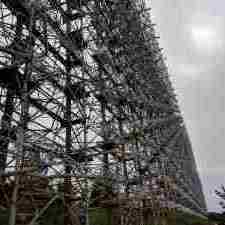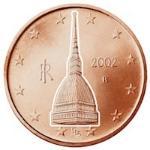Forum
-
Forum PLC
-
- 111,4k
- messaggi
-
- Possibile crescita professionale?
- Da Marco Fornaciari,
-
- 10,4k
- messaggi
-
- Aprire image.bpd
- Da zanellatofabio,
-
- 12,7k
- messaggi
-

- CPU NJ
- Da Ctec,
-
- 1,5k
- messaggi
-

- Panasonic o LG?
- Da Livio Orsini,
-
- 95
- messaggi
-
- Eaton easy e4 e stringhe di testo
- Da Smanettone15,
-
- 19,7k
- messaggi
-

- PLC Unitronic
- Da Mattia Spoldi,
-
- 6,9k
- messaggi
-
- 154
- messaggi
-
-
Forum Automazione Industriale
-
- 23,4k
- messaggi
-

- MASSIMO NUMERO RICETTE TP1200
- Da drn5,
-
- 64,7k
- messaggi
-
- Salvamotore + Fusibili ?
- Da Gumbo,
-
- 23,7k
- messaggi
-
- ePlan P8 Modulo Morsetti
- Da Operational Amplifier,
-
- 15,3k
- messaggi
-
- 454
- messaggi
-

- SLC1013M
- Da Livio Orsini,
-
- 1,7k
- messaggi
-
-
Forum Impiantistica elettrica
-
- 123,3k
- messaggi
-
- Impianto "a regola d'arte"
- Da Marcoforna79,
-
- 20,8k
- messaggi
-
- Collegamento motore 2 velocita
- Da simuffa,
-
Impianti elettrici
- Interruttori differenziali, magnetici e termici
- Qualità dell'energia elettrica
- Normative e sicurezza
- Didattica elettrotecnica
- Schemi e applicazioni di circuiti elettrici
- Citofoni, videocitofoni e intercomunicanti
- Cancelli elettrici
- Sistemi e installazioni per la diffusione sonora
- Altri argomenti elettrici
- 249,5k
- messaggi
-
- 34,9k
- messaggi
-
Illuminotecnica
- Illuminazione Pubblica (stradale)
- Illuminazione Pubblica (arredo urbano)
- Illuminazione pubblica (regolatori di flusso)
- Illuminazione pubblica (Led e Fotovoltaico)
- Illuminazione a Led
- Illuminazione interni
- Illuminazione di emergenza
- Segnaletica luminosa stradale
- Normative e Sicurezza (illuminotecnica)
- Altri argomenti su illuminazione
- 12,1k
- messaggi
-
- Luce corridoio
- Da simuffa,
-
-
Forum Elettronica
-
Elettronica
- Elettronica generica
- Microprocessori Hw & Sw
- Arduino e Raspberry
- Apparati, Schemi & circuiti
- Circuiti stampati (PCB) e CAD per disegno elettronico
- Componenti elettronici ed equivalenze
- Droni
- Strumentazione elettrica ed elettronica
- Guasti già risolti Elettronica
- Altro su elettronica
- Elettronica Fai da te
- 169,7k
- messaggi
-
- Alternativa a triac FT1214MH
- Da stefano_,
-
Radiocomunicazioni
- Radioamatori
- CB e 43MHz
- PMR e LPD
- Altri RTX (bande civili, nautiche, ecc)
- SWL (radioascolto)
- Autocostruzione
- Antenne, cavi e accessori
- Amplificatori lineari, alimentatori e strumentazione
- Microfoni e dispositivi audio
- Eventi e fiere radiantistiche
- Altri argomenti radio
- Riparazioni e modifiche
- Modi digitali e software
- 4,7k
- messaggi
-

- Grip Dip
- Da Livio Orsini,
-
-
Forum Sicurezza
-
- 1
- messaggio
-

- ATTENZIONE: Leggere attentamente prima di postare
- Da Gabriele Riva,
-
- 172,2k
- messaggi
-
- ajax smoke screen
- Da Skatish95,
-
- 44,5k
- messaggi
-
- Impostazione NVR
- Da obilankenoby,
-
- 3,2k
- messaggi
-
- CBE su sistema con 4 centrali AM8200N
- Da Errevi76,
-
-
Forum Meccanica - Idraulica - Pneumatica - Oleodinamica
-
- 954
- messaggi
-

- Microcontrollore
- Da Livio Orsini,
-
- 24,2k
- messaggi
-
- Problemi canotto grohe
- Da robertice,
-
- 9,8k
- messaggi
-
- Motore del compressore in dispersione
- Da simuffa,
-
- 1,8k
- messaggi
-

- Schema oleodinamico Brichettatrice
- Da drn5,
-
-
Forum Termotecnica
-
- 20,4k
- messaggi
-
- Nuovo firmware per inverter ZCS Zucchetti.
- Da sormike,
-
- 96,7k
- messaggi
-
- 137,4k
- messaggi
-
- Errore F5 Ferroli bluhelix teta 24 c
- Da giorgio17,
-
- 16,7k
- messaggi
-
- Freon
- Da karlo maders,
-
- 2,3k
- messaggi
-
- Guarnizioni omologate per gas ma come si mettono??
- Da obilankenoby,
-
- 501
- messaggi
-
- normative en54
- Da Ciccio pa,
-
- 20,4k
- messaggi
-
- Tubi Gas cucina e induzione
- Da DavideDaSerra,
-
-
Forum Telefonia
-
- 6,1k
- messaggi
-

- cordless Gigaset: batterie scariche
- Da Livio Orsini,
-
- 1,9k
- messaggi
-
- VOIP telefonate mute
- Da effegi61,
-
- 5k
- messaggi
-

- Consiglio acquisto cellulare da usarsi come router per casa.
- Da Livio Orsini,
-
- 6,2k
- messaggi
-
- 1,2k
- messaggi
-
- Centralino Telefonico Urmet Agorà2
- Da BuildingSrl,
-
- 67
- messaggi
-
.thumb.jpg.63dc4f62a2bf61b901880191128e244e.jpg)
- Vodafone Classic collegato da un cordless
- Da Alessio Menditto,
-
-
Forum PC
-
- 12k
- messaggi
-
- 8,2k
- messaggi
-
- alone verde comparso improvvisamente
- Da Giophi,
-
- 1,6k
- messaggi
-
- foxconn 115xdbp
- Da Nik-nak,
-
- 5,1k
- messaggi
-
- Come sistemo?
- Da avengernow,
-
- 4,3k
- messaggi
-

- aiuto.
- Da drn5,
-
- 2k
- messaggi
-

- Librerie C#.
- Da drugo66,
-
- 18,1k
- messaggi
-

- trasferimento dati
- Da Livio Orsini,
-
- 329
- messaggi
-
- Gestionale per termoidraulici
- Da Roberto1978,
-
-
Forum TV
-
TV - CRT - LCD - PLASMA
- Philips - Phonola
- Guasti TV Risolti
- Altre marche TV
- Ultravox - Watson
- Toshiba
- Sony
- Sonoko
- Thomson - Saba - Nordmende - Telefunken - A.E.G.
- Sinudyne - Dumont - Seitech
- Seleco - Rex - Formenti -Westinghouse
- Schneider - Sharp
- Sanyo
- Samsung
- Roadstar - Amstrad - Vestel
- Pioneer
- Panasonic
- Nokia - Salora
- Mivar
- Mitsubishi
- Loewe
- LG - Goldstar
- JVC
- ITT - Graetz - Shaub-Lorentz
- Innohit - Irradio - Lenoir
- Indesit - Lazer - Luxor - Nexius - Nikkei
- Hitachi
- Grundig - Metz - Minerva
- Geloso - Singer - Kennedy - Magnadyne
- Fenner - Kerion - Kneisser - Kennex
- Daewoo
- Crystall - Capsonic - GBC - Goodmans
- CGE - Imperial - Philco - Orion - Radiomarelli - Seimart
- Brionvega
- Blaupunkt - Siemens
- Beko - Bluesky - United
- B&O (Bang & Olufsen)
- Autovox
- Aiwa - Akai
- Monitor e videoproiettori
- Didattica TV
- Service Mode (Richieste ed inserimento)
- 319,6k
- messaggi
-
.thumb.jpg.63dc4f62a2bf61b901880191128e244e.jpg)
- Tv Telefunken bloccata dopo aggiornamento software.
- Da Alessio Menditto,
-
- 36,2k
- messaggi
-
- Maledetti alimentatori a prezzi stracciati.
- Da NovellinoXX,
-
- 12,3k
- messaggi
-
- SkyQ platinum: stand-by/off
- Da reka,
-
- 9,1k
- messaggi
-
- Vcr/lettore sony SLV-D900
- Da greg291987,
-
- 1,4k
- messaggi
-
- PS4 Fat pulsante di accensione non funziona
- Da Zippo978,
-
- 678
- messaggi
-
- 3,2k
- messaggi
-
- Telecomando madeforyou Simply 2:1
- Da Matteo__30,
-
-
Forum Antennistica
-
- 64,8k
- messaggi
-

- Aiuto su impianto DTT/SAT
- Da snipermosin,
-
- 12,9k
- messaggi
-
- Puntamento antenna tele star digiflat 4
- Da fraungaro,
-
- 6,2k
- messaggi
-
- Impianto FRACARRO TV+SAT.
- Da minoanto,
-
- 19
- messaggi
-
- Manuale GBS 41989
- Da Christian 80,
-
- 5k
- messaggi
-

- Misurazione guadagno con strumento analogico
- Da roipnol,
-
- 277
- messaggi
-
- Server Sky Q
- Da DavideDaSerra,
-
- 3,4k
- messaggi
-

- Stranezza su un foglio dati di una logaritmica
- Da snipermosin,
-
- 394
- messaggi
-

- Canali ch non hanno mai preso
- Da felix54,
-
-
Forum Elettrodomestici
-
- 156,2k
- messaggi
-
- 74,6k
- messaggi
-
- Scheda lavastoviglie smeg st65120
- Da Ganimede77,
-
- 26k
- messaggi
-
.thumb.jpg.63dc4f62a2bf61b901880191128e244e.jpg)
- Frigorifero Hotpoint con vaschetta condensa sempre piena
- Da Alessio Menditto,
-
- 13,3k
- messaggi
-
- W67 MN840 NB microonde Whirlpool
- Da LuigiC23,
-
- 5,5k
- messaggi
-
- Boiler/caldaia gas/elettrico
- Da reka,
-
- 3,5k
- messaggi
-
.thumb.jpg.63dc4f62a2bf61b901880191128e244e.jpg)
- Neato botvac D7 non si connette al wifi
- Da Alessio Menditto,
-
- 15,8k
- messaggi
-
- Motore Bimby Termomix TM21 perde colpi
- Da lo_stalker,
-
- 2,1k
- messaggi
-
- Pacchetto elettrodomestici cucina
- Da giuseppemrc,
-
- 1,4k
- messaggi
-

- Microonde Whirpool JT369 (e derivati) non scalda!
- Da Livio Orsini,
-
- 809
- messaggi
-
- aiuto a sbloccare portafinestra
- Da Nhio,
-
-
Altri Forum
-
- 4,4k
- messaggi
-

- Forum stranamente lento
- Da drn5,
-
- 139
- messaggi
-
- Pierluigi Ighina: le sue scoperte
- Da RiccardoS,
-
- 2,2k
- messaggi
-
- Perché ci bagniamo meno sotto la pioggia camminando o correndo?
- Da NovellinoXX,
-
Forum Svago
- Presentazione nuovi utenti, saluti e ringraziamenti
- Auguri
- Culinaria
- Viaggiare per il mondo
- Arte, cultura, società
- Collezionismo, antiquariato, artigianato
- Salute e benessere
- Scuola e istruzione
- Spettacolo, teatro, radio, TV
- Sport e Fitness
- Natura e animali
- Musica
- Modellismo dinamico
- Motociclismo
- Automobilismo
- Fotografia
- 20,3k
- messaggi
-

- presentazione
- Da Livio Orsini,
-
-
Connessi al forum 12 Utenti, 0 Anonimo, 1.920 ospiti (Visualizza la lista)
- 3kek1
- reka
- mistertv
- Domi5
- andreacos92
- stebar1
- Alessio Menditto
- Tintomas
- RS6R
- p.grant
- FeliceM
- fisica

